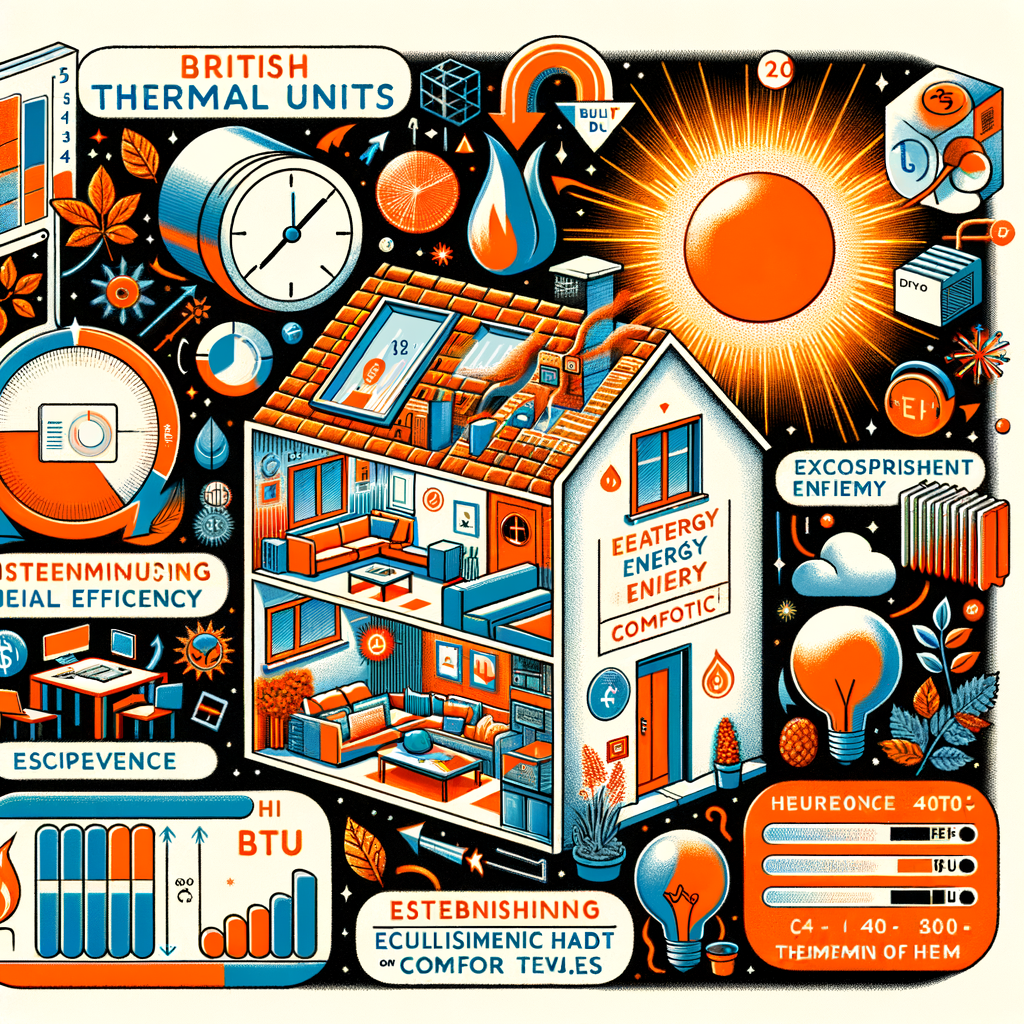Understanding the Significance of BTUs in Heating and Cooling Systems
 When it comes to selecting heating, ventilation, and air conditioning (HVAC) systems for your home or office, understanding the concept of British Thermal Units (BTUs) is crucial. The question of how important are BTUs in the context of energy efficiency and comfort cannot be overstated. This article delves into the essence of BTUs, their significance in HVAC systems, and how they affect your living or working environment. With over 30 years of experience in SEO and content writing, particularly within the HVAC industry, I aim to shed light on this fundamental concept, ensuring you have the necessary knowledge to make informed decisions regarding your heating and cooling needs.
When it comes to selecting heating, ventilation, and air conditioning (HVAC) systems for your home or office, understanding the concept of British Thermal Units (BTUs) is crucial. The question of how important are BTUs in the context of energy efficiency and comfort cannot be overstated. This article delves into the essence of BTUs, their significance in HVAC systems, and how they affect your living or working environment. With over 30 years of experience in SEO and content writing, particularly within the HVAC industry, I aim to shed light on this fundamental concept, ensuring you have the necessary knowledge to make informed decisions regarding your heating and cooling needs.
What are BTUs?
Before we explore how important are BTUs, let’s define what a BTU is. A British Thermal Unit (BTU) is a measure of heat energy. It is defined as the amount of heat required to raise the temperature of one pound of water by one degree Fahrenheit. In the context of HVAC systems, BTUs measure the amount of heat an air conditioning system can remove from a room per hour, or conversely, the amount of heat a heating system can add to a room per hour. This measurement is crucial in determining the capacity and efficiency of HVAC equipment.
Why BTUs Matter in HVAC Systems
Understanding how important are BTUs in selecting HVAC systems is vital for several reasons. First and foremost, the right BTU capacity ensures that your system can efficiently and effectively maintain comfortable temperatures in your space, regardless of the weather conditions outside. An underpowered unit will struggle to cool or heat a room adequately, leading to discomfort and higher energy bills, as the system has to work harder to try to maintain the desired temperature. Conversely, a unit with too many BTUs can cause rapid cycling, where the system turns on and off frequently, leading to inefficiency, excessive wear and tear on the system, and an uncomfortable fluctuation in temperatures.
Calculating the Right Amount of BTUs
Calculating the correct amount of BTUs needed for your space is a critical step in ensuring comfort and efficiency. The calculation considers various factors, including the size of the room (in square feet), the room’s exposure to sunlight, the number of occupants, and additional heat sources within the room, such as appliances. A general rule of thumb is that you need approximately 20 BTUs per square foot of living space. However, this can vary based on the factors mentioned above. Professional HVAC contractors can perform detailed calculations to determine the most accurate BTU requirement for your specific needs.
BTUs and Energy Efficiency
Another aspect of understanding how important are BTUs relates to energy efficiency. Selecting a system with the right BTU rating not only ensures comfort but also contributes to energy conservation. An appropriately sized HVAC system will operate more efficiently, reducing energy consumption and, consequently, your utility bills. Moreover, energy-efficient systems contribute to reducing carbon footprints, aligning with global efforts towards sustainability.
The Impact of BTUs on HVAC System Cost
The initial cost and the long-term operating costs of an HVAC system are significantly influenced by its BTU capacity. Generally, systems with higher BTU ratings are more expensive upfront. However, investing in a system that is correctly sized for your space can lead to substantial savings on energy bills over time, offsetting the initial higher cost. It is essential to consider both the purchase price and the projected operating costs when evaluating different HVAC options.
BTUs and Comfort
At the heart of the question how important are BTUs is the issue of comfort. An HVAC system with the appropriate BTU rating for your space can maintain a consistent and comfortable indoor temperature and humidity level. This is crucial not only for personal comfort but also for the protection of sensitive equipment or items that may be affected by extreme temperatures or humidity levels. The right balance of BTUs can significantly enhance the livability and usability of a space.
Conclusion
The importance of BTUs in the context of HVAC systems cannot be understated. As we have explored, BTUs play a pivotal role in ensuring energy efficiency, cost-effectiveness, and, most importantly, the comfort of indoor environments. When selecting heating and cooling systems, a thorough understanding of how important are BTUs will guide you in making the best choice for your specific needs. Remember, consulting with a professional HVAC contractor to accurately calculate your space’s
Last updated: July 30, 2024


